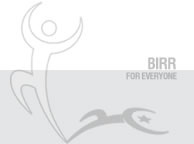





| Related Links | ||
| Needs Analysis | ||
| Volunteers | ||
| PUBLICATIONS | ||
| BIRR Guidebook | ||
| BIRR Brochure | ||
The strategies employed to meet our mission are centered on two broad objectives: To lower the risk of Muslim youth joining the path of extremism by developing prevention strategies based on best practice guidelines and theological refutations. Strategy The problem of extremism is not primarily rooted in socio-economic deprivation; it is based on mistaken interpretations of Islam that justify ideological motivations grounded on political grievances. Thus, the threat of extremism can only be defeated once the ideas that underpin it are explicitly tackled and refuted. BIRR aims to achieve this through the presentation of ‘extremism prevention campaigns’, which will provide counter-narratives and refutations based on mainstream Islamic theology and thought. Effective theological counter-arguments are an inspirational force that can equip and empower Muslim youth with the intellectual understanding and awareness of the deficiencies and harms of extremist ideas and behavior. BIRR is currently in the process of publishing a guidebook that summarises the narratives underpinning extremism and presents arguments against extremist ideas, thus providing a better understanding of the radicalisation process and the vulnerability factors associated with it. Objective 2 To educate and train Muslim youth-at-risk (ages 15-25) to become leaders as a method of increasing their capacity to resist and counter negative social influences. Strategy BIRR is currently in the process of developing and implementing a best-practice mentoring program for the prevention of extremism amongst Muslim youth and the promotion of an Australian Muslim identity. By training Muslim youth with outstanding personal characteristics to become peer mentors to youth-at-risk, any clashes or crises of identity will be addressed adequately and within a culturally appropriate setting. This training entails education about the fallacies of extremism and its false representation of the Islamic ethical system. This knowledge can empower the youth by serving as an ‘antidote’ against extremist ideas. We believe that peer mentoring will also build on low self-esteem levels and instill in youth-at-risk a sense of pride for being Australian Muslims. This will then enable them to overcome the alienation and disenfranchisement they might experience in society and their vulnerability and susceptibility to fringe thoughts and groups.
|


